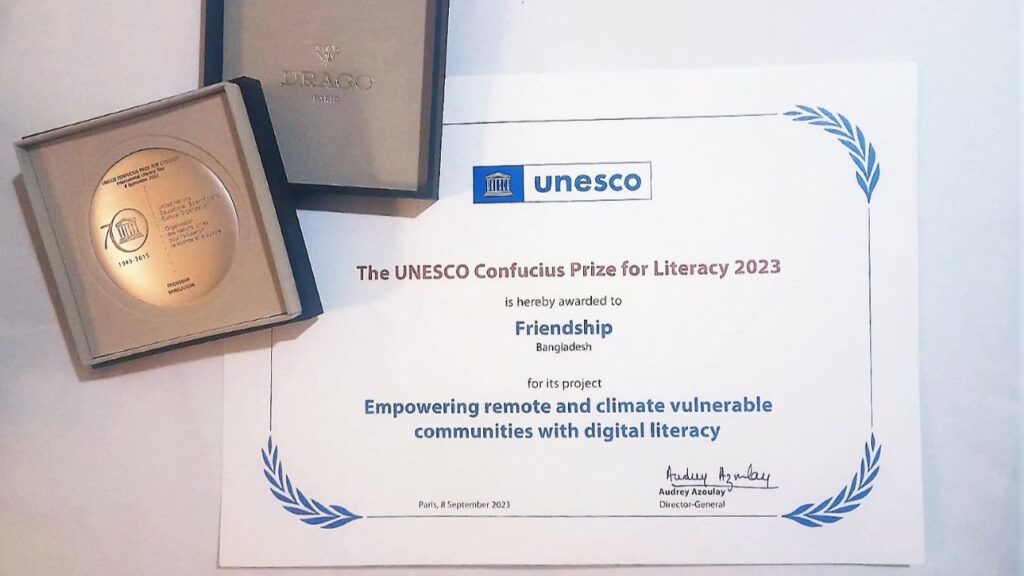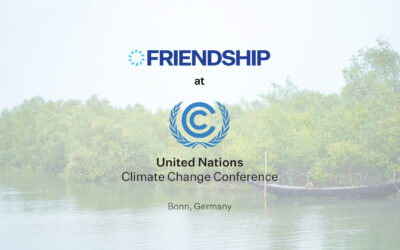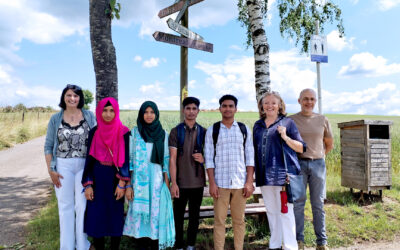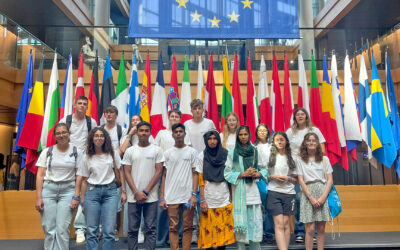Programmes recognised for bringing functional literacy to adults and out-of-school youth
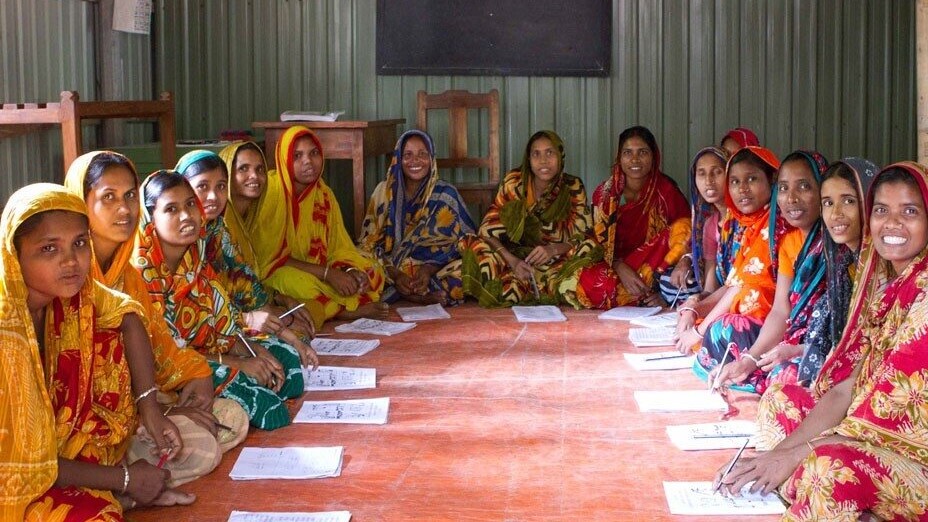
by Raeed Abd-Allah Chowdhury
September 10, 2023
On Friday, September 8, Friendship was awarded the UNESCO Confucius Prize for Literacy, in recognition of its contributions to functional literacy leveraging digital tools in support of adults in rural areas and out-of-school youth. The prize, sponsored by the Government of the People’s Republic of China, recognised Friendship’s ‘Empowering remote and climate vulnerable communities with digital literacy’ programme, which uses digital tools to provide hybrid learning to marginalised communities in Bangladesh, with a view to addressing school dropout in coastal communities.
The programme works in and with local, climate-affected, marginalised, rural communities in Bangladesh’s remote riverine and coastal areas to provide adults and adolescents with access to education and long-term, practical learning that will last their lifetimes. It was given the award alongside two programmes from the Dominican Republic and Uganda.
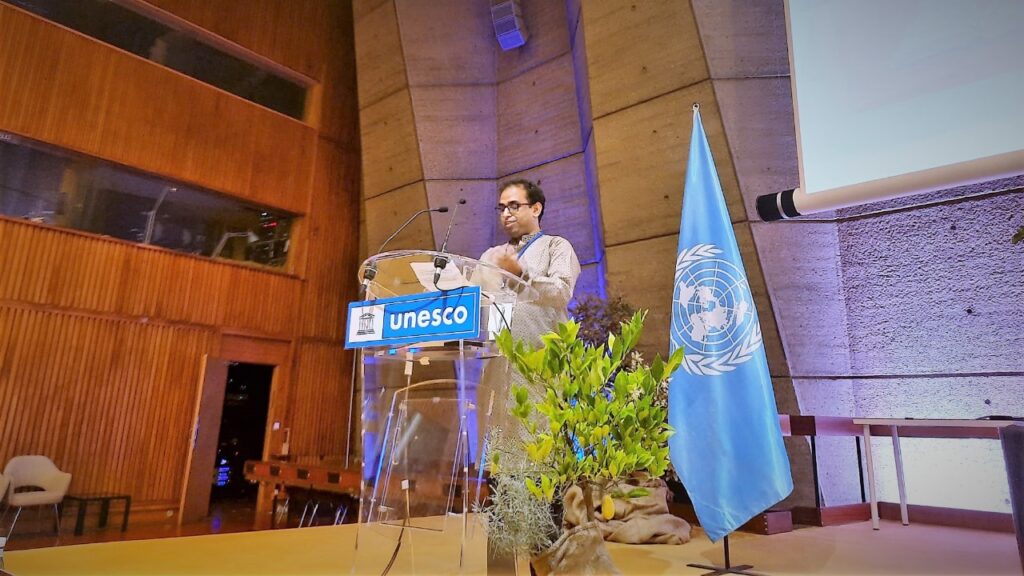
Friendship was nominated for the prize by Dr. Dipu Moni, Bangladesh’s minister for Education, who also attended the ceremony at the UNESCO headquarters in Paris, France on September 8. Mahbubur Rahman Turza, assistant director of partnership development, accepted the certificate and medal on behalf of Friendship.
Friendship’s adult literacy programme, which started in October 2007, targets adolescents and adults from the ages of 14-45, most of whom (85%) are women aged 20-35 who have had no formal education, or could not continue their education beyond the primary level. It operates in 49 centres in 49 chars (sedimentary river islands) and in the coastal districts of Patuakhali and Bagerhat, and involves about 384 hours of learning over a period of 8 months, with two-hour sessions six days a week. At the end, the learners are expected to be able to read, write and do mathematics up to the grade three level, after which they can volunteer for income-generating activities (IGA) training such as poultry and cattle rearing and tailoring.
It’s important to remember that most of these learners are women, and are from uneducated, patriarchal, rural communities where women have very little agency, and are often seen as financial burdens to be married off at the earliest opportunity (often as children). Therefore, having a second chance to be an earning, contributing, productive member of their household and community is difficult to understate. Even a grade three education is sufficient to keep accounts and be literate enough to handle their own affairs without the need for their husbands, fathers or other members of the family to do it for them, and enables them to have self-sufficiency, confidence, wherewithal and say in their own existence.
The other aspect of the education programme that was awarded by UNESCO, is the Friendship Secondary Education Replication Project, that was started in July 2022. The project aims to give out-of-school and dropout children who have completed their national Primary Education Completion Examination (PECE) administered by the Ministry of Primary and Mass Education, but have not, because of socio-economic circumstances, been able to continue their studies after. Within the context of these rural communities, children reaching adolescence—boys in particular, are seen as more of an asset for labour, than their potential as an educated graduate for other opportunities. As such, many children are either made to drop out of school, or cannot continue because of financial constraints. Thus, the scalable, replicable secondary education project allows these students to be able to continue their studies unhindered.
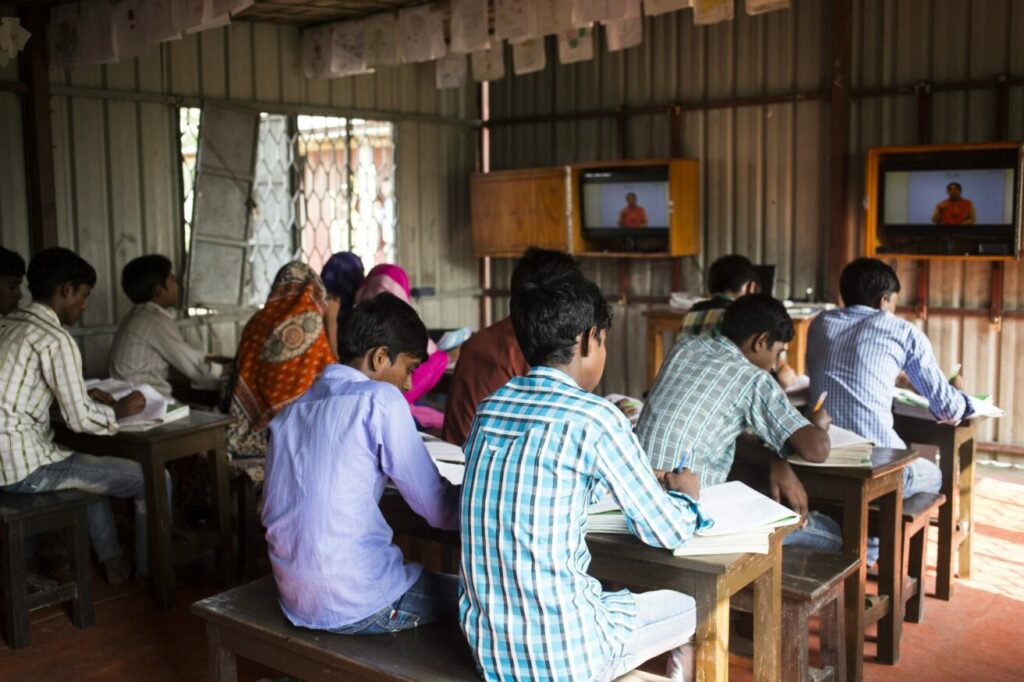
Located on erosion-prone sandbar landscapes, Friendship’s pre-fabricated school buildings can easily be dismantled and relocated, and are powered by solar panels. In an environment where it is difficult to find teachers, the secondary school lessons are pre-recorded in Dhaka, the capital, and displayed on the solar-powered media systems on-site. Facilitators selected from the local community and trained as facilitators conduct the classes, and ensure direct, hands-on explanations for the pre-recorded lessons.
The facilitators receive continuous refresher training, and the students themselves are given access to a career guidance cell that assists them in finding further education opportunities, and jobs that fit their individual aptitudes. These facilitators have often had no education or career opportunities themselves before their inclusion in the programme. Moreover, the secondary schools have also included ICT labs, and have regularly gotten stellar results in public examinations, outperforming their peers with better average scores in public examinations. The curricula are based on the government education board for all public schools, but also includes lessons on ethics, good citizenship and environmental responsibility to foster well-rounded character development as well as academic progress.
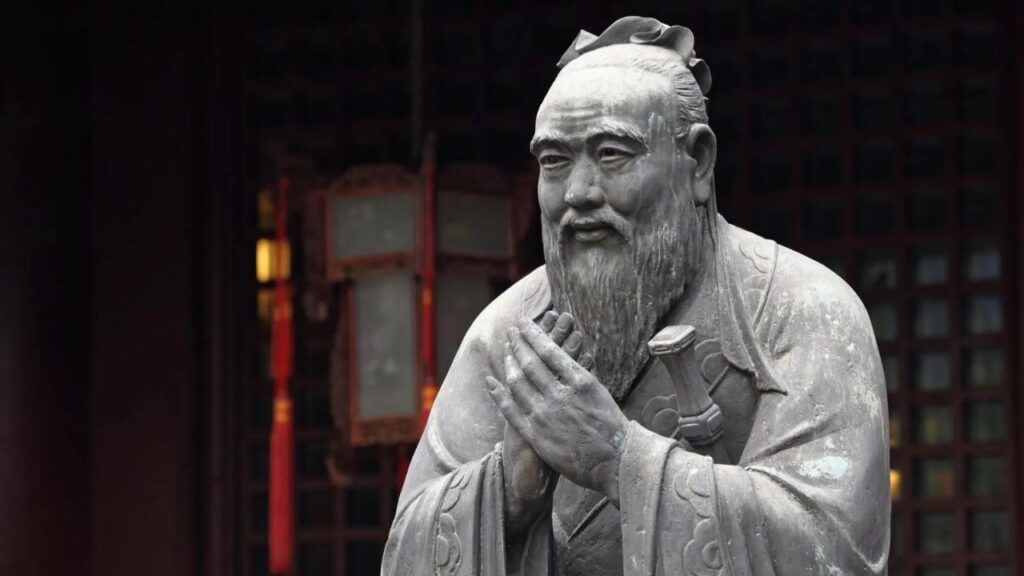
The facilitators receive continuous refresher training, and the students themselves are given access to a career guidance cell that assists them directly in finding further education opportunities, and finding jobs that fit their individual aptitudes. These facilitators have often had no education or income opportunities themselves before their inclusion in the programme. Moreover, the secondary schools have also included ICT labs, and have regularly gotten stellar results, outperforming their peers with better average scores in public examinations. The curricula, it is to be noted, is based on the government education board for all public schools, but also includes lessons on ethics, good citizenship and environmental responsibility to foster well-rounded character development as well as academic progress.
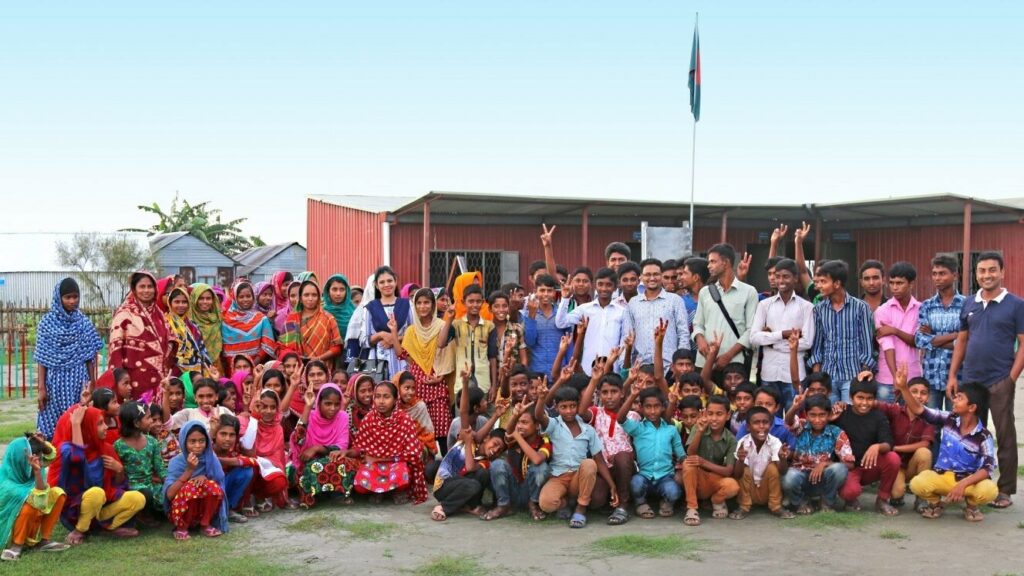
Together, these methodologies offer learners of all ages dignity, and hope, and embody justice, equality and empathy, creating a brighter and more inclusive future for all. It offers lifelong learning, and creates skills and knowledge that provide a much wider range of opportunities, allows them to contribute meaningfully to their communities, and realise their full potential.
Friendship has been running 396 learning centres funded by UNICEF in the Rohingya camps since 2018.
